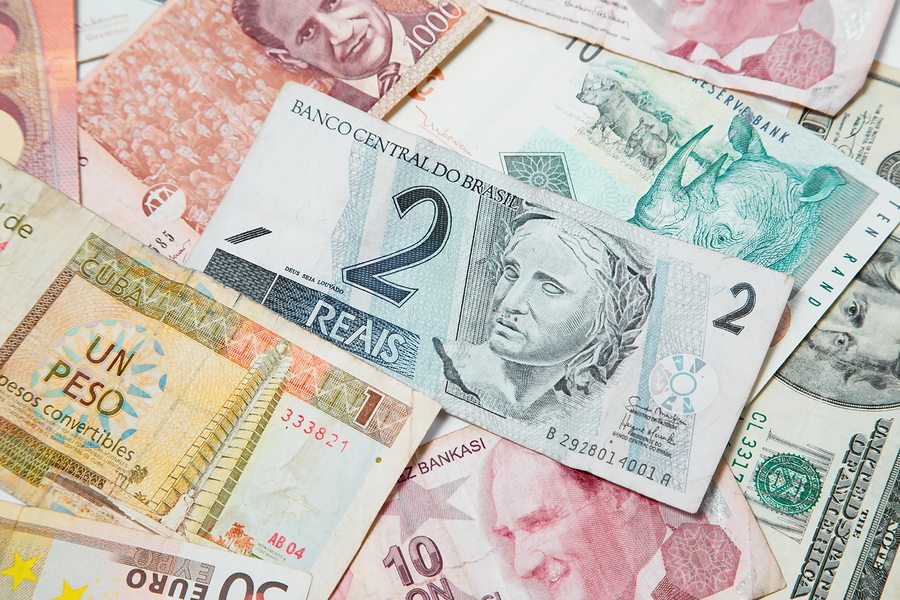Emerging markets melt.
September 3, 2018 | Expert Insights

Emerging economies have been plunged into turmoil this year as their currencies collapse under pressure from rising US interest rates, political clashes and the global trade war.
Background
An emerging market is a country that has some characteristics of a developed market, but does not satisfy standards to be termed a developed market. This includes countries that may become developed markets in the future or were in the past. The four largest emerging and developing economies are the BRIC countries (Brazil, Russia, India and China).
The recent US-China trade war has unleashed instability on the global economy. The pressures have exposed frailties in multiple emerging markets, particularly the reliance on funding from foreign investors, who are more likely to pull out their money as local currencies drop in value.
History shows us that trade is the best method of ensuring mutual prosperity. However, the trade war has drained investor confidence from the emerging markets, and the currencies are losing value because foreign investors are selling their reserves at an alarming pace.
Analysis
Worries about Argentina and Turkey have prompted nervous investors to retreat from other economies that are viewed as vulnerable. On Friday, Indonesia's currency plunged to its lowest level against the US dollar since the Asian financial crisis 20 years ago.
Turkey's currency has been thrashed by a potent mix of confrontational politics, economic policy confusion and US interest rate hikes. The lira has plunged more than 40% versus the US dollar since January.
Many Turkish companies have sought to lower their borrowing costs in recent years by taking out loans in foreign currencies. Observers worry they could now fall behind on the loans because customers pay them in lira. President Recip Tayyip Erdogan has unnerved investors by resisting calls for interest rate hikes to try to rein in rampant inflation.
Analysts say the damage is already showing up in economic data. The lira's slump has left the Turkish people and companies suddenly feeling worse off, hitting consumer spending and business confidence.
Meanwhile, Argentina's peso has more than halved in value against the dollar since the start of the year. As the currency nosedived again this week, the government asked the International Monetary Fund to speed up payments from a $50 billion lifeline set up earlier this year.
Argentina's central bank on Thursday jacked up its key interest rate from 45% to an eye-watering 60% in a bid to encourage investors to hang on to their pesos. It said it plans to keep rates at that level until at least December, and some analysts think they won't start to come down until the middle of next year. Unfortunately, this extraordinary move failed to stem the currency's collapse. Nearly 70% of Argentine government debt is in foreign currencies, according to Moody's. That will become ever harder to pay as the peso plummets.
India's rupee hit a new record low against the dollar on Friday as part of the broader emerging market sell-off. It's down almost 10% since the start of the year. India's economy isn't showing many signs of weakness just yet, though. It's currently the world's fastest-growing major economy. However, it is facing serious headwinds. It relies heavily on energy imports, which puts it in a vulnerable position as oil prices rise. That's helped push up inflation to uncomfortable levels for the central bank.
Brazil's currency was also pressured earlier in the year by a nationwide strike by truckers, which drove up inflation and disrupted economic growth. Politics have been weighing heavily on Brazil's currency, the Real, in recent months. It has slumped 20% against the dollar since the start of January.
Investors are worried about the outcome of the presidential election scheduled for October. They are hoping Brazilians will elect a pro-business leader who can carry out big financial reforms such as cutting the country's budget deficit.
Russia's ruble has crumbled in recent months in the face of economic sanctions. The currency has shed about 15% against the dollar this year. Russia has been squeezed for years by Western sanctions, which were imposed over its involvement in the conflict in Ukraine.
Assessment
Our assessment is that the emerging market currencies will continue to underperform under the threat of the ongoing trade war. As most of these currencies depend on foreign investments from the US or China, the trade war is unsettling the flow of capital and therefore the performance of the currencies. We feel that the respective central banks will start to sell their dollar reserves in order to maintain the value of their currencies.
IndiaWatch
India’s RBI has already started selling its Dollar reserves in a bid to keep the Rupee from falling in value further. Although the Q2 growth for India in FY2018-19 has been recorded at 8.2%, investor confidence is still growing very slowing. A major factor was the failed demonetization drive which resulted in no measurable positive impact on the Indian economy.








Comments